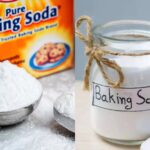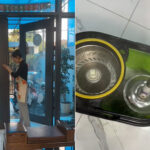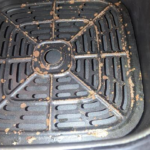Gas stoves are a popular and convenient kitchen appliance for cooking. However, they are prone to rust and are more challenging to clean than electric or induction cooktops. Stubborn grease can build up and cause rust around metal components such as the grates, burners, and stove surface, leading to reduced cooking efficiency and unhygienic conditions.
The following tips will help you clean your gas stove quickly and conveniently without resorting to harsh chemicals.
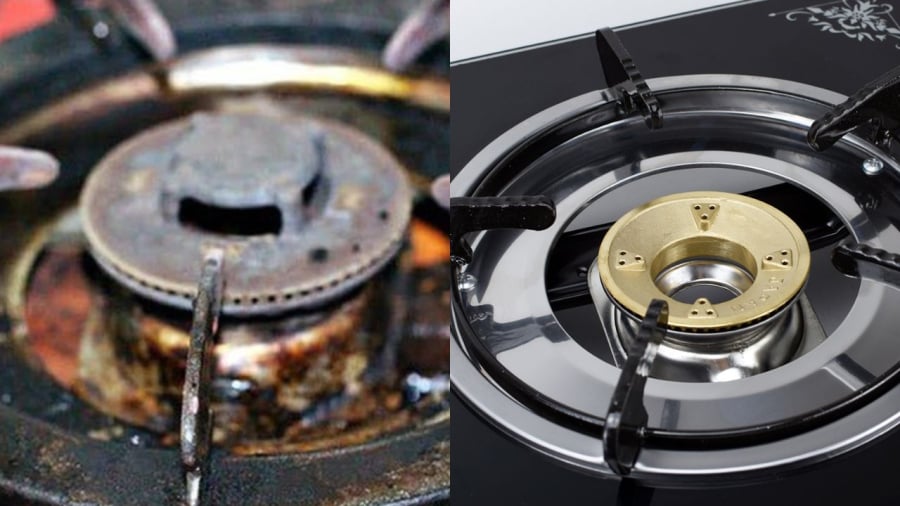
Reasons Why Your Gas Stove Develops Rust
Before cleaning, it’s essential to understand why your gas stove is prone to rusting:
- Exposure to moisture and high humidity: If your cooking area is damp or you frequently spill water on the stove surface without wiping it dry, the metal parts can oxidize and rust.
- Grease and food residue buildup: When grease is not cleaned regularly, it can harden and corrode the metal surfaces.
- Lack of regular cleaning: Neglecting to wipe down and clean your stove regularly can make the rust situation worse.
6 Tips to Clean a Rusty Gas Stove Without Using Harsh Chemicals
1. Remove Rust with White Vinegar
White vinegar is an inexpensive, easily accessible, and effective cleaning agent due to its natural acidic properties. To clean rust off your gas stove:
- Soak a soft cloth in white vinegar and apply it directly to the rusted areas.
- Let the vinegar sit for 10-15 minutes to penetrate the rust.
- Use a soft brush or a gentle scrubbing pad to scrub the rust gently.
- Wipe the area with a damp, clean cloth.
You’ll be surprised at how effectively vinegar removes rust without the need for harsh chemicals.
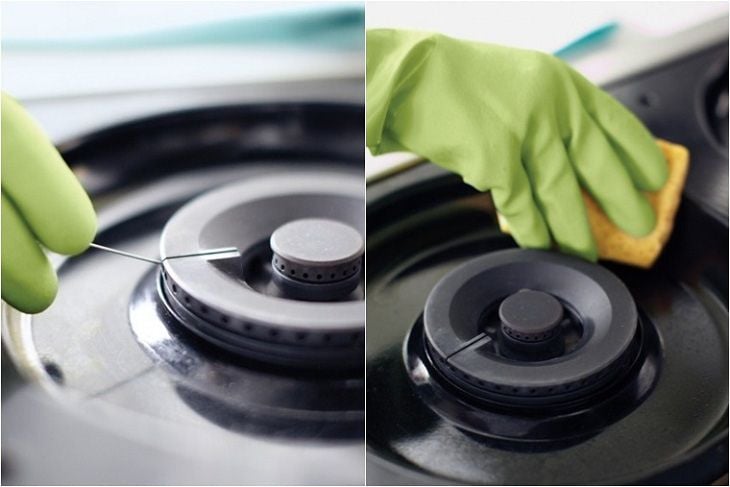
2. Remove Rust with Lemon Juice
Similar to vinegar, lemon juice contains citric acid, which helps remove rust and stains from your gas stove. Here’s how to use it:
- Squeeze fresh lemon juice onto the rusted areas.
- Let it sit for about 15 minutes to allow the acid to work.
- Use a scrubbing pad or the lemon rind to scrub the affected areas.
- Wipe the area with a damp cloth and then dry it.
In addition to its cleaning properties, lemon juice also helps neutralize odors and leaves your kitchen smelling fresh and clean.
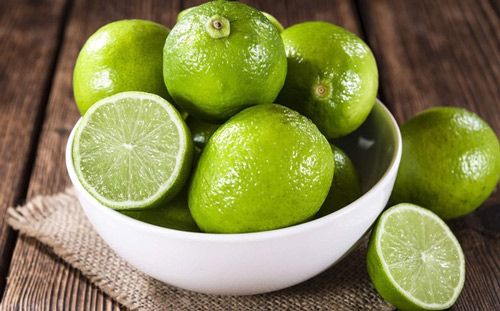
3. Baking Soda to the Rescue
Baking soda is a versatile ingredient for both cooking and cleaning. To remove rust from your gas stove:
- Mix one tablespoon of baking soda with water to form a thick paste.
- Apply the paste to the rusted areas and let it sit for about 20 minutes.
- Use a pot scrubber or a stiff brush to scrub the paste away.
- Rinse with clean water and wipe the area dry.
For an extra boost, add a few drops of lemon juice to the baking soda paste. Baking soda not only cleans but also neutralizes odors and adds shine to metal surfaces.
4. Hot Water to the Rescue
Hot water is often overlooked, but it’s an easy way to soften stubborn grease and grime. Here’s how to use it:
- Boil some water and pour it directly onto the stove surface if safe to do so.
- Soak the stove grates in hot water mixed with dish soap for 15-20 minutes.
- Wear gloves and use a soft cloth or brush to scrub each part clean.
Hot water helps loosen built-up grime, saving you time and effort in scrubbing.
5. Rice Water: An Uncommon but Effective Solution
Rice water, the starchy water left over after cooking rice, is an excellent natural cleaner due to its high starch content. Here’s how to use it:
- When the rice water is still warm, scoop out the thick layer that forms at the top.
- Soak a cloth in the rice water and apply it to the rusty and greasy areas of your stove.
- Gently scrub the area until the grime comes off.
- Wipe the area with a clean cloth dampened with dish soap.
This method is gentle on your hands and environmentally friendly.
6. Cooking Oil: From Culprit to Savior
Although it may sound unusual, cooking oil can help remove rust when used correctly. Here’s how:
- After initially cleaning the rusted area, apply a thin layer of cooking oil to the oxidized surface.
- Use a soft cloth or scrubbing pad to gently rub the area.
- Wash the area with dish soap as usual.
Cooking oil helps soften the rust and adds shine to metal surfaces. However, use a moderate amount to avoid making the surface greasy.
Tips to Prevent Rust and Keep Your Gas Stove Looking New
- Wipe the stove surface dry after each use.
- Never leave spilled food or water unattended.
- Perform a thorough cleaning of the entire stove at least once a week.
- Avoid placing the stove in a damp area or near a water source or cold drafts.
























